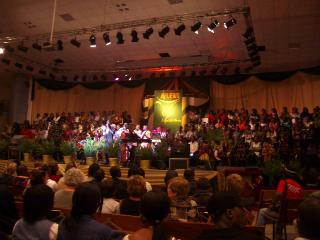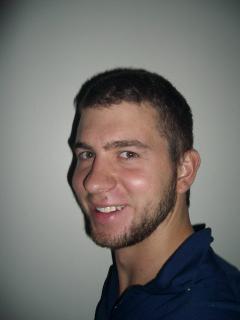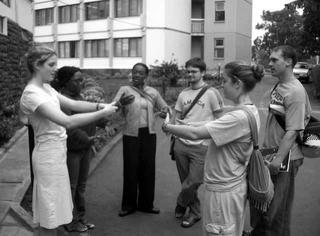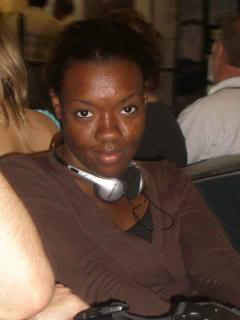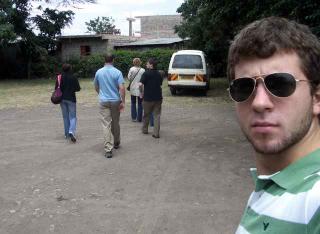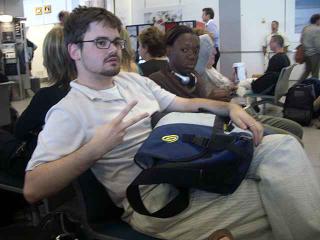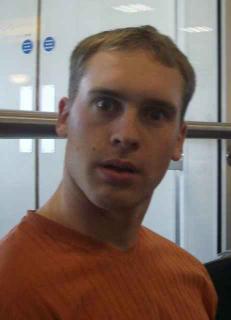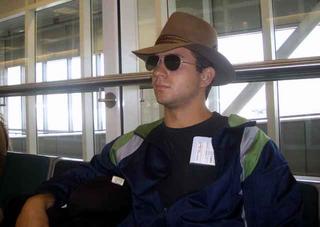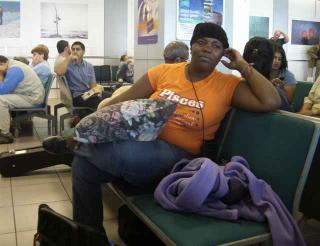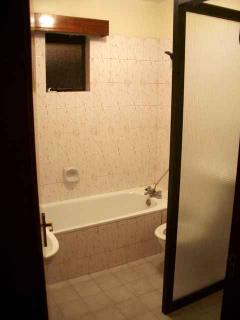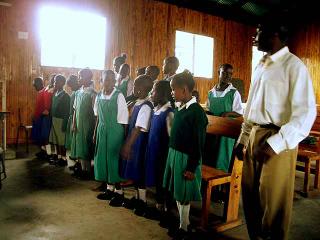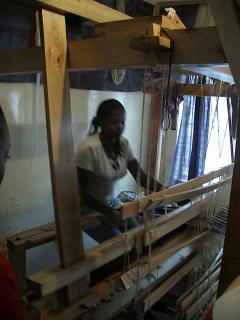Today we had our first Swahili lesson. I find the language very interesting and quite simple grammatically (at least, so far). Starting to learn a language all over again makes me want to revert to Spanish, although I haven’t been able to find any Spanish speakers in Kenya.
In the afternoon we met with Buri (pronounced Foori), a Kenyan attending Princeton Seminary. He plans to do youth work when he completes his degree in May. We discussed aspects of faith in different cultures, focusing primarily on African spirituality. He said to look for a couple of possible differences in Christianity in Africa versus the West. Note: these are generalities and should not be assumed of every Kenyan, let alone African.
(1) Africans feel closely linked to the spirit of their ancestors, and everything they do relates somehow to the not living. As the saying goes, the dead teach the living. With Christianity, they see God involved in all aspects of their lives, and as a result pray before and sometimes after they do anything: driving, eating, drinking tea, when visitors arrive and leave. Thus far I have found this to be true for the most part.
(2) In a similar light, Africans are very aware of their ancestral past as well as their personal past. Giving one’s personal testimony is much more common for Christians here, and introductions often include a short statement of faith. An example might be, "Hi, my name is John. I am from Nyiri. I praise the Lord each day for my personal savior, Jesus Christ."
(3) Africans tend to see the Christian faith as a fight between good and evil, just as they had believed in good and bad spirits. The main question, as opposed to the West, is not "What happened?" but rather, "Who did it?" Persons will often talk of something as either caused by the devil or by God. Sometimes this is taken to an extreme, but not all bad things are equated with the devil and vice versa for God.
We received these pieces of knowledge as observances from one Kenyan, and our experience may be different. I have noticed that people here are more direct than they tend to be in Latin America and sometimes even the States, especially in their questions. Some may ask you your views on certain political matters or issues of faith. Buri suggested that they are trying to see how Christian you are, or maybe what an American Christian looks like. However, this line of thinking means that to be uncertain or vague about serious matters means something is wrong with you. Either you believe one way or the other. An example would be whether or not one supports the upcoming referendum on the new constitution: it’s a simple yes or no vote.
Whatever the case may be, there will be a unique blend of West (both from missionaries and colonialists) and African influences in the Christian faith. On the surface, much of the worshipping might seem a little sterile, with few drums and no dancing; possibly a Presbyterian influence. But the Spirit is certainly alive and with more time I hope to "uncover" the more African influences.
Buri also suggested to focus on our personal devotions, being flexible to others’ faith while spending alone time with God. Being deliberate about finding ways to share one’s faith will also be important to keep one’s faith and hope alive in a foreign place. I pray to God that as I encounter both the familiar and the unfamiliar that I will have an open mind and listening heart, that my vision of God and for God’s people will be ever-widening.

